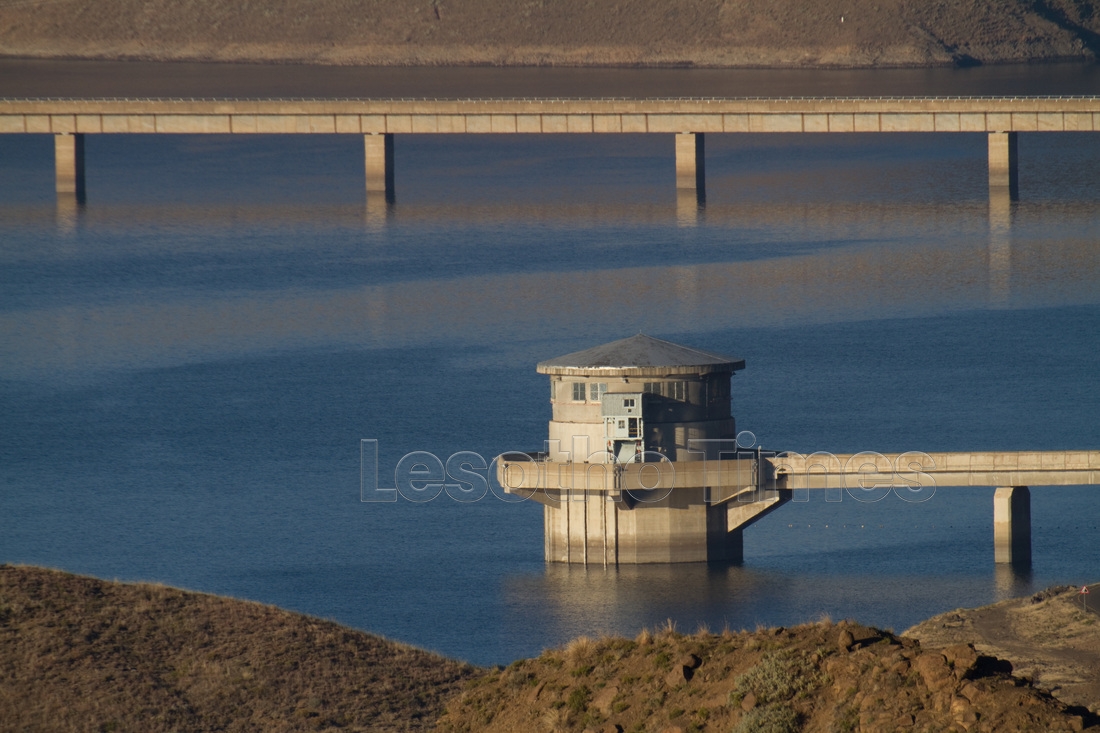—as Muela shutdown begins
Following widespread complaints from Basotho regarding the Lesotho Electricity Company (LEC)’s service delivery inefficiencies, particularly delays in electricity connections, the Lesotho Times (LT)’s reporter, ‘Mathatisi Sebusi, spoke to LEC Public Relations Manager, Tšepang Ledia, to try and establish the facts.
Many Basotho have claimed that despite having paid connection fees up to six months ago, they have yet to be connected to the grid.
The LT also sought to understand the LEC’s financial struggles, after Minister of Energy, Professor Nqosa Mahao, said the parastatal was lumbered with a M700 million
Excerpts:
LT: There’s been a public outcry about LEC’s delays in connecting households and businesses to the electricity grid, even after payments are made. What is the situation, and what is causing these delays?
Ledia: It is true. Normally, people get connected within six weeks or less. However, we’ve had challenges getting materials from our suppliers, leading to delays in electricity connections. The lack of resources was the main issue, and we made this public. Thankfully, I can now confirm that we’ve resolved this, and connections have resumed, starting with the earliest applicants. We sincerely apologize for the delays and the inconvenience this has caused, but we are back on track.
LT: LEC has faced financial difficulties for some time. Has LEC been able to pay off the over M700 million debt owed for power imports from Eskom and EDM? How has this debt impacted LEC’s relationship with these suppliers?
Ledia: We have agreements with Ramarothole Power Station, ‘Muela, Eskom in South Africa, and EDM in Mozambique. These agreements ensure a certain amount of electricity is supplied to us. Given our long-standing relationships, our suppliers understand our situation when we face financial challenges. While we owe them, we continue to receive electricity, and we have been making payments in instalments. We recently made a payment, although the debt has not been fully settled.
LT: How much has been paid towards the debt and how much is outstanding?
Ledia: I currently don’t have the exact figures, but I can confirm that payments are being made in stages.
LT: ‘With ‘Muela Dam shut down for maintenance, what plans does LEC have in place to ensure that Basotho continue receiving electricity for the next six months without blackouts?
Ledia: Basotho should not worry about the ‘Muela shutdown, as it will not affect them in any way. We have made arrangements to ensure that they continue receiving electricity without any interruptions, and if any challenges arise, they will be promptly notified.
‘Muela informed us about the maintenance shutdown at the beginning of this year. The shutdown means we will no longer get electricity from ‘Muela Power Station, which is one of our key suppliers. Upon receiving the notice, LEC immediately reached agreements with Eskom, Ramarothole Solar Plant, and EDM to supply Lesotho with electricity and cover the shortfall created by ‘Muela’s absence.
This type of maintenance shutdown is not new; the last time it occurred was in 2019. Every time they run maintenance, they inform us well in advance, allowing us to make alternative arrangements to ensure that electricity supply is not disrupted.
We procure electricity from multiple sources, including the Southern African Power Pool, Ramarothole Solar Plant in Mafeteng, Eskom in South Africa, and EDM in Mozambique. These suppliers will collectively cover the energy we usually receive from ‘Muela during its shutdown, and agreements with all the parties have been successfully reached.
‘Muela shut down on Tuesday, and as you can see, we still have electricity running as normal. Load shedding is not something we anticipate at this stage. However, should there be any power outages, Basotho will be informed beforehand to avoid confusion with load shedding. We are not currently in a position where load shedding is even a consideration.
LT: Let’s talk about money problems at LEC, have they been resolved and what are the reasons behind them?
Ledia: The financial challenges faced by LEC are not issues that can be resolved overnight. One of the primary reasons for our struggles is that many Basotho fail to pay the remaining balance of their connection fees as expected.
A significant amount of money is owed by both individual Basotho and large businesses that use our electricity and then pay later. Most people have only managed to pay 60 percent of their connection fees, with the remaining balances are still outstanding. There are also large companies, including mines and factories, that fall under the postpaid category, meaning they use electricity and then pay afterwards. Unfortunately, many of these businesses delay their payments.
Additionally, several factories have closed while still owing us money. Despite these setbacks, we are actively trying to reach out to our debtors and encourage them to settle their outstanding amounts.
There are two main categories of debtors: large customers, who fall under the postpaid system, and domestic users, who owe the balance of their connection fees. We are committed to working with both groups to ensure these debts are cleared.
LT: How much is owed to LEC by domestic users and postpaid customers?
LT: Minister Mahao recently announced that the LEC Board had requested around M300 million to cover electricity needs during ‘Muela’s shutdown. Did LEC receive this funding?
Ledia: Allow me not to comment on whatever the minister said. He is my boss, and I wouldn’t want to say anything that contradicts what he has already communicated.

